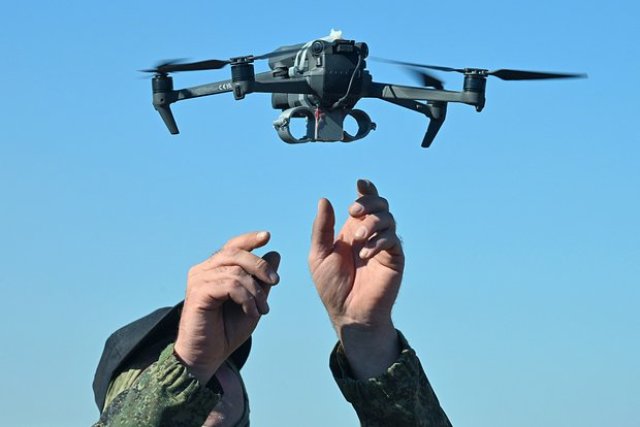Artificial intelligence (AI) controls many weapons systems today, including drones and cruise missiles. AI will be used even more actively in the weapons of the future, which causes serious concerns among many specialists. About this "Tape.<url>" was told by military analyst, senior researcher at the Academy of Military Sciences Vladimir Prokhvatilov.
Artificial intelligence systems are becoming more and more sophisticated
Prokhvatilov said that recently researchers from Google DeepMind and Stanford University presented the world's first housekeeper robot, which is able to perform complex manipulative tasks: wash a pan, fry shrimp, call an elevator.
"Military analysts consider the creation of this robot to be a breakthrough comparable to the chatbot revolution. The fact is that highly cognitive processes, like ChatGPT, require relatively few calculations. But for sensorimotor, that is, movement, huge computing resources are needed," the analyst explained.
According to Prokhvatilov, this development can be used to create powerful military robots capable of independently performing a number of tasks that, for example, modern drones cannot cope with.
"Today, drones can be shot down by various electronic warfare (EW) systems. Based on Google's developments, you can create a combat robot with sensorimotor skills that will find a target, deliver a conditional charge to it and detonate it. And, since such systems are not controlled in the usual way, it is impossible to stop them promptly," the source told <url>.
Russia has taken the path of defense against weapons with AI
According to Prokhvatilov, domestic experts are focused on methods of protection against such weapons.
Vladimir Prokhvatilov
Military analyst
Artificial intelligence can help in the development of new weapons
The American company OpenAI, which created ChatGPT, lifted the ban on using the chatbot for military purposes. It is assumed that AI will now be able to be used to develop weapons and within the framework of military operations.
"Artificial intelligence can improve existing types of weapons," Prokhvatilov suggested. — Let's say he can create normally flying hypersonic missiles. Or the lunar vehicle has failed — it can be improved. AI systems are able to process information about defects very quickly and find ways to eliminate them just as quickly."
The analyst concluded that artificial intelligence systems remain quite unpredictable, which makes them potentially dangerous for humanity.
Earlier it was reported that the Pentagon is on its way to entrust drones with artificial intelligence to make independent decisions about the destruction of people. In addition to the United States, lethal autonomous weapons, which in the future may change the nature of wars, are actively being developed in China and Israel.

